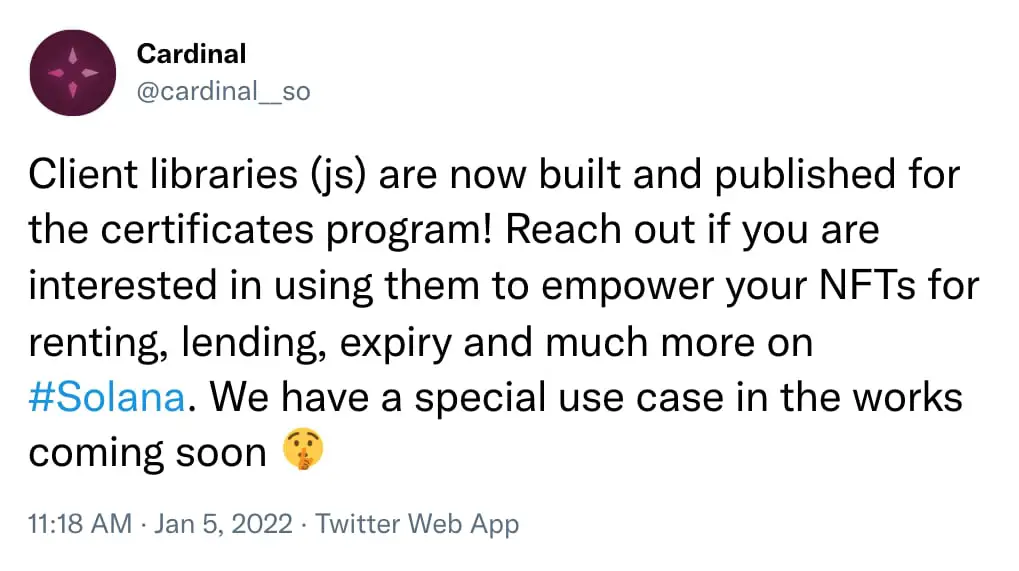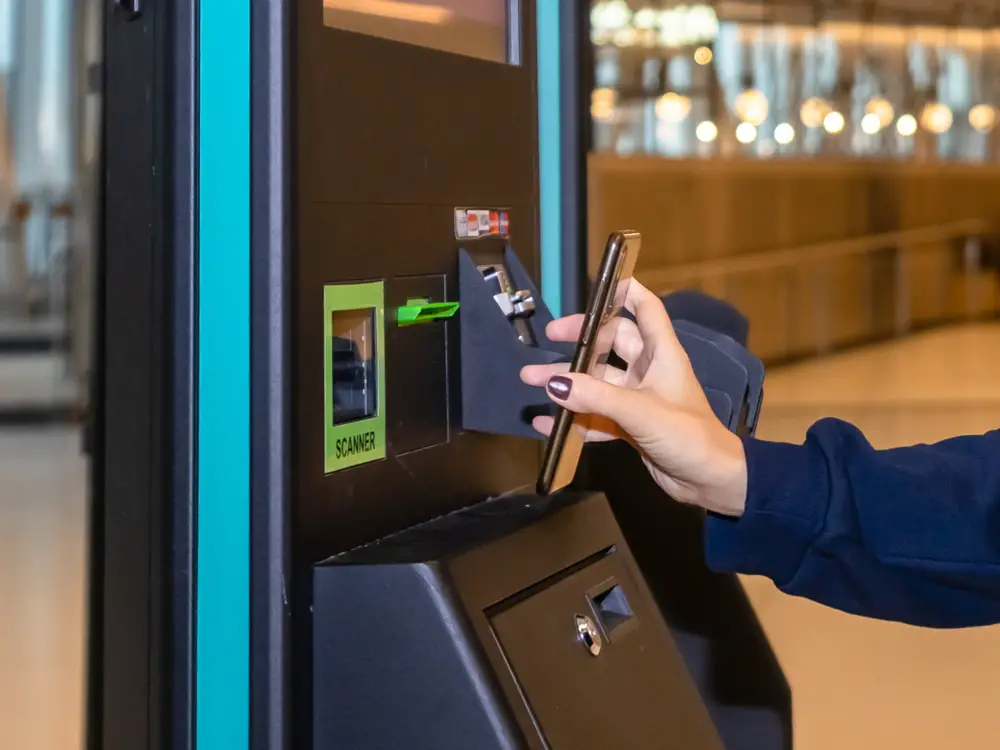In brief:
- Cardinal allows users to rent, loan, issue in-game items or tickets
- NFT’s have a time-based or user-based expiration, and manual cancelation
- These NFT certs are genuinely revolutionary, giving actual utility to NFT issuance
This week Cardinal Protocol announced it allows for the authentication of certificates on the Solana blockchain. Enabling users to rent, loan, issue in-game items, and go as far as to issue permits, pass, and more.

Transaction for this issuance will happen between three entities:
- The issuers are the NFT artists or ticket brokers who have something to lend out.
- The recipients are NFT collectors or participants of an event or game. They are receiving a digital item from the issuers.
- The authenticators are the third party involved in the transaction. They could be appraisers, employers, digital market makers, and such.
Cardinal issues a certificate in the form of a Solana token that shows up in the recipient’s digital wallet.
Interestingly, the issuer can loan or rent their original NFT.
There are three ways the “contract” termination takes place.
Intuitively, one can borrow the asset for a specific amount of time or until they want to return it or when the owner needs it back.
Or they can lend it out by printing a copy of it. This way, the certificate can be traded or even transferred to another party.
Just think about the different possibilities this can offer as a utility in the NFT space.
Imagine a fan buys a ticket to their favorite sports team game.
The stadium sells the ticket and then sends a one-time use link via email.
The non-fungible tokens issued by Cardinal land in their phantom.app wallet in a process unbeknownst to the user and grants them access to the game.
The wallet automatically generates a QR code presented to the attendant during entry.
Many other unique use cases will happen to utilize this protocol.
Let’s review an example that happens in the Metaverse.
A person owns a Portals room.
There is a fixed supply of Portals.
Therefore, holders who want to build downtown have to buy or rent a Portal.
Now, holders can rent Portals for passive income.
Holders get an airdrop of passes required to access downtown that you can sell to new users.
Lastly, the recent Cardinal NFT certificates announcement opens the door for collectibles, certifications, and ticket sales.
This utility is truly revolutionary in the NFT space as it expands its real-world uses even further.


